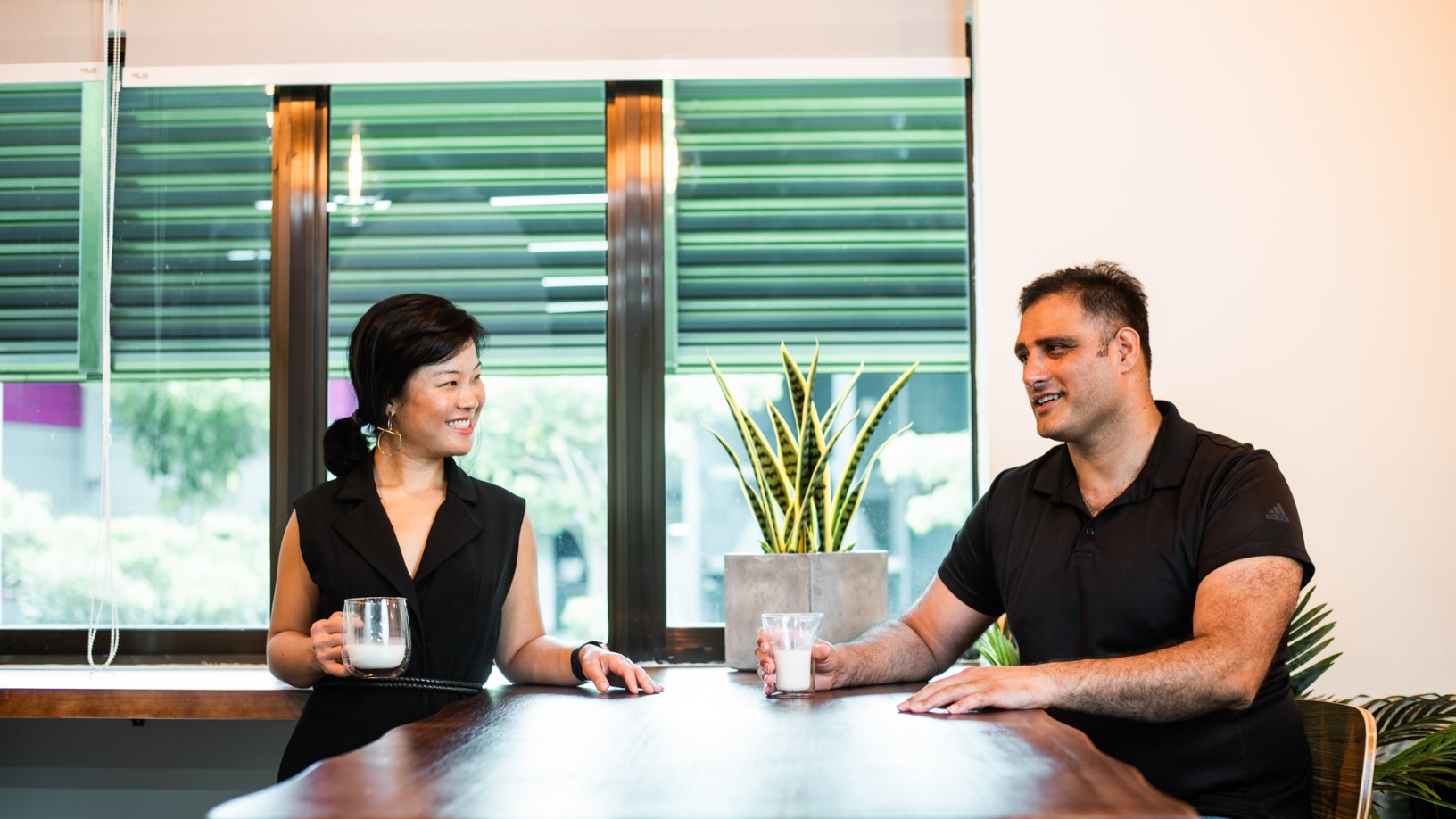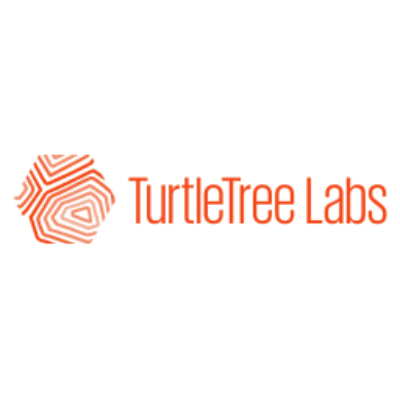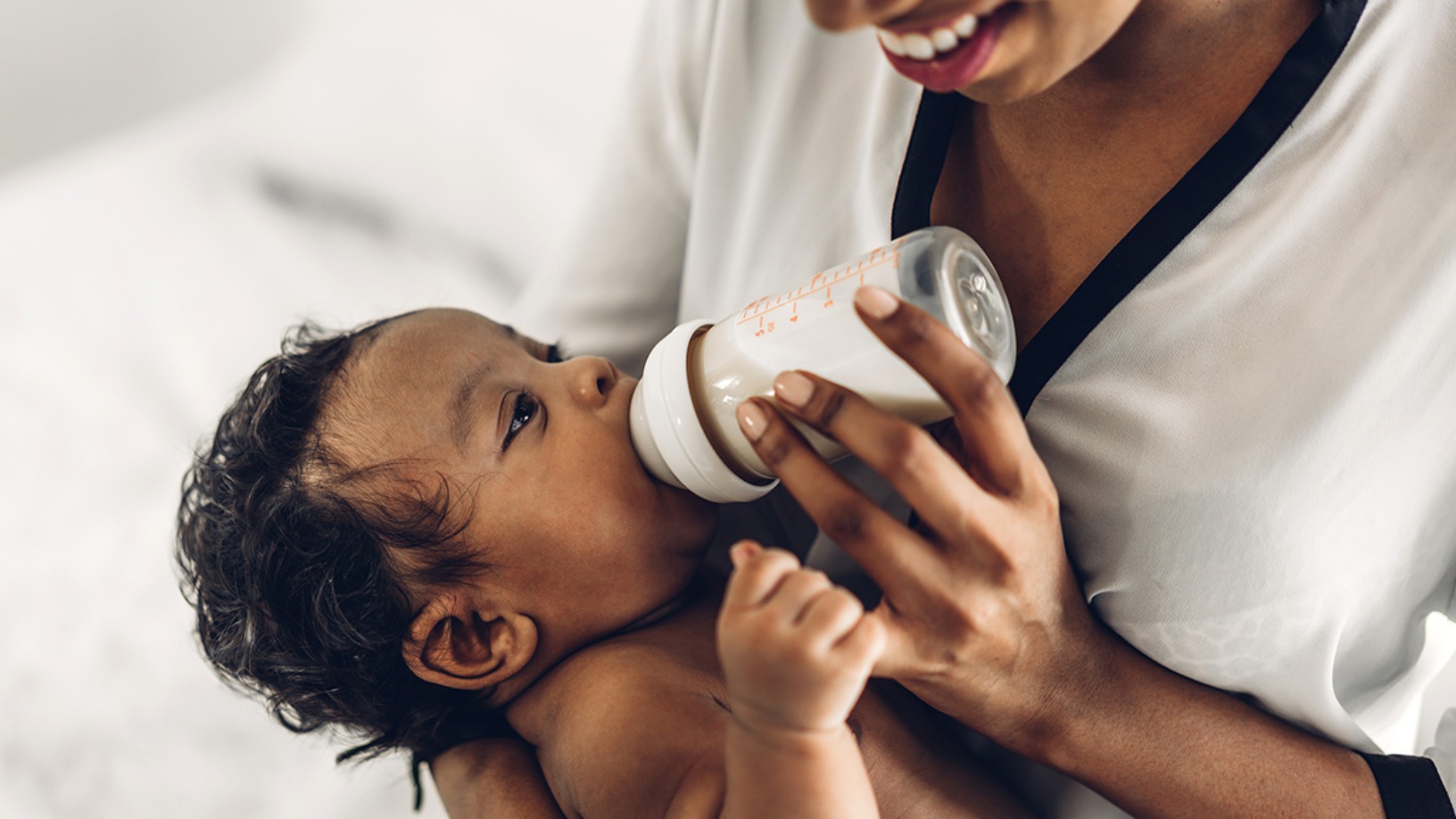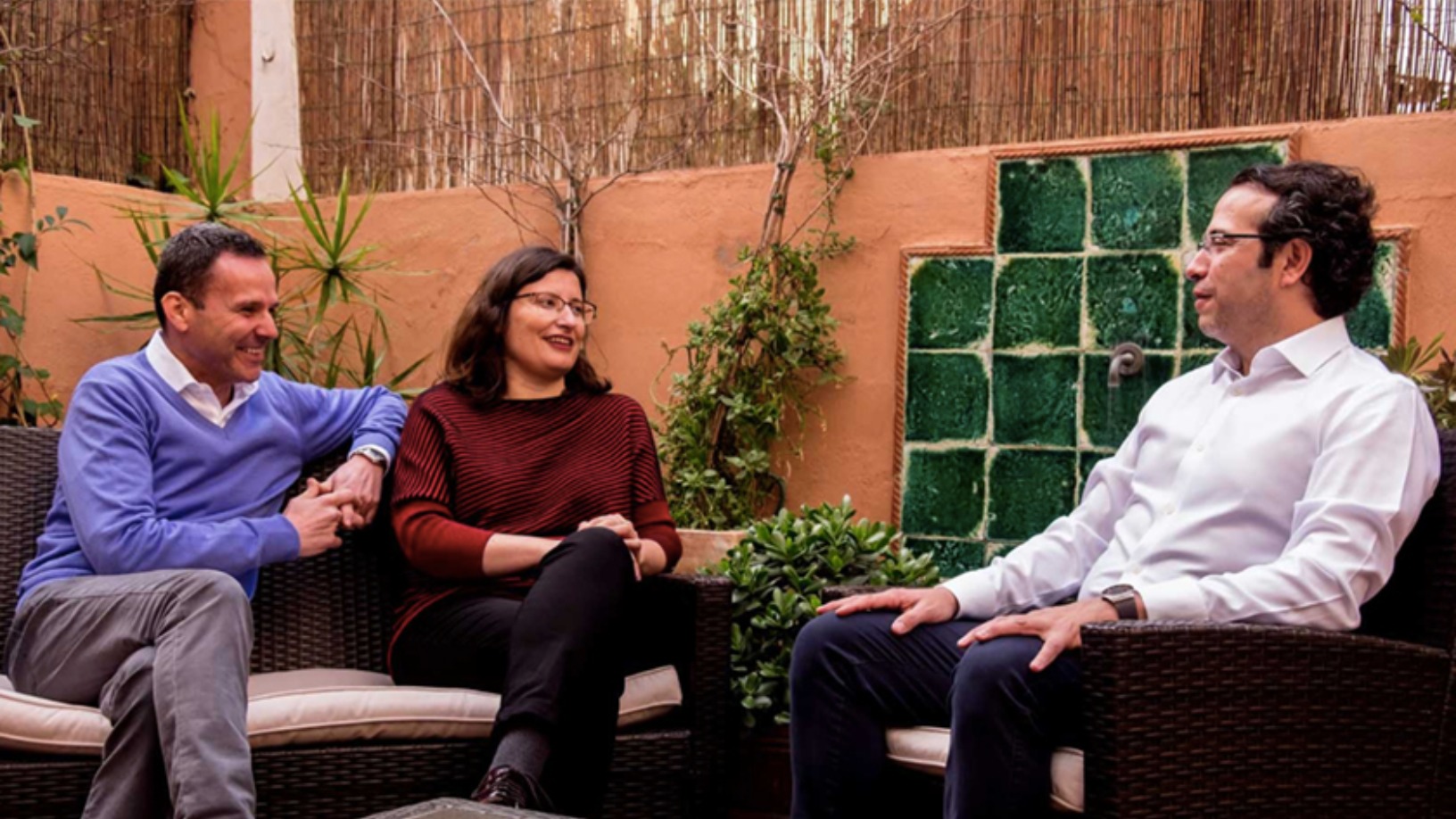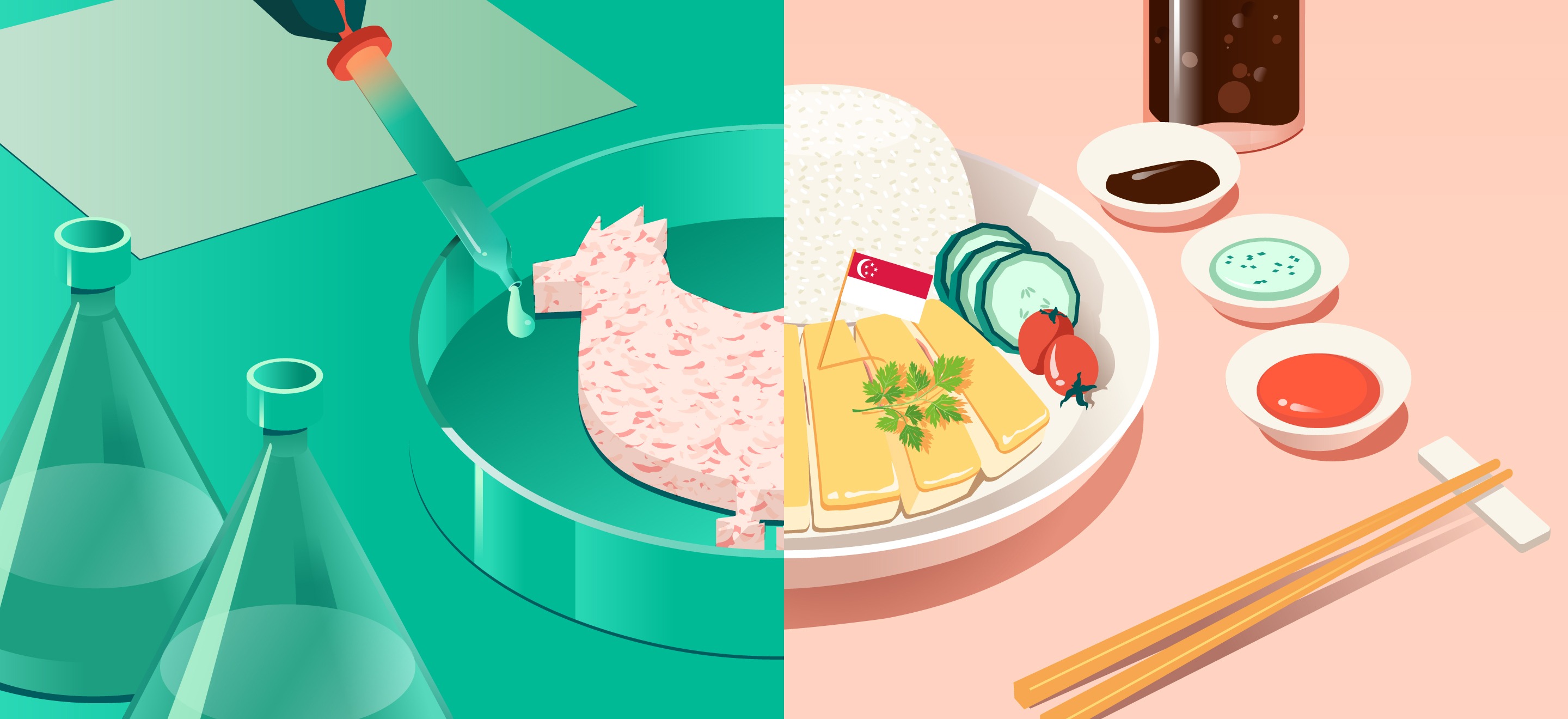The story of biotech milk startup TurtleTree Labs actually started with cheese. While working for Salesforce and Google in Singapore, cheese connoisseur Lin Fengru would often visit dairy farms around Asia to look for high-quality milk to make good cheese. During her search, Lin discovered first-hand the unhygienic conditions of factory farming and the excessive use of antibiotics and hormones on dairy cattle.
The farm visits also highlighted to her the global environmental issues relating to animal farming. “Cattle are estimated to produce 11% of all human-induced greenhouse gas emissions, with 72% of the emissions occurring in processes prior to the milk leaving the farm," she told media, "And as demand for dairy products increases with the rising global population, novel strategies for milk production are more important than ever,” she added.
Lin finally gave up her search for high-quality dairy milk and co-founded TurtleTree Labs in 2019 with Californian entrepreneur Max Rye. Headed by Lin as CEO and Rye as CTO, the biotech startup began searching for alternative dairy milk sources to solve the factory farming and environmental challenges.
Instead of following the popular trend of making plant-based milk, the co-founders recruited cell biologist Rabail Toor for R&D to produce cell-based high-quality mammalian milk substitutes. Stem cells from milk produced by cows, goats, camels and even humans were cultivated into mammary gland cells to induce lactation, a natural milk production process in mammals.
Using cell-based formulas to create full-composition milk can reduce the carbon footprints of milk production by 98% compared to that of dairy milk, said TurtleTree Labs after winning the S$1m first prize from Temasek Foundation at The Liveability Challenge 2020. In the same year, the startup also competed against 175,000 entrants from 200 countries to win $500,000 at the Entrepreneurship World Cup.
The commercial potential of TurtleTree Labs was spotted by early-stage investors Lever VC, KBW Ventures and K2 Global in 2019. In 2020, it secured $9.4m seed and pre-A funding rounds from existing and new investors to speed up R&D and scale up production.
Demand for infant milk
With the infant formula market expected to reach $109bn by 2027, household dairy milk brands and infant formula ingredients companies have already asked TurtleTree Labs to work with them to find solutions to produce nutrient-rich breast milk.
The co-founders realized there was a huge demand for infant milk when dairy companies told them: “if you can make human milk, you can transform the way infant formula is done.” Human milk also sells at a higher price point because customers are used to paying a lot more for infant formula, Rye said. “It’s one of the most expensive things out there, and there is a lot of interest from the infant nutrition industry,” he said.
If you can make human milk, you can transform the way infant formula is done
However, cultivating human milk from cells in the lab is not easy. Little is known about the composition of breast milk including immune molecules, proteins, lipids, sugars and hormones. The constituents of human milk also vary according to each mother’s health and diet. An advantage of breastfeeding is that the mother’s milk changes in composition as a baby grows, but this also makes it virtually impossible to completely replicate real human milk.
Unlike its US-based rival Biomilq, TurtleTree extracts stem cells from donor human milk and then cultivates them into mammary cells. Biomilq, however, sources the actual mammary cells from commercially available cell lines and grows them inside a bioreactor.
“Lab-produced human milk will still lack some components that are found in natural breast milk such as a mother’s antibodies,” TurtleTree Labs told CompassList via email. “However, we can produce certain critical ingredients that can be found in human milk but not in infant formula products, closing the gap between the two.”
Asset-light licensing model
TurtleTree Labs’ current focus is on producing naturally occurring ingredients found in human milk like human lactoferrin, human alpha-lactalbumin and a range of human milk oligosaccharides. “There are huge regulatory hurdles to be crossed before lab-grown breast milk can go on sale, but getting approval for its individual components will be more straightforward.” the co-founders told media.
TurtleTree Labs will be working with industry partners for the production and sale of products from its ingredients. “In the beginning, we will produce these functional ingredients and supply them to dairy, infant nutrition and F&B companies. Down the road, we will license the technology for the production of full-composition liquid milk to dairy companies," the company told CompassList.
“This will allow us to remain asset-light and allow these companies to leverage their large-scale production capabilities and distribution networks.” The company aims to release the first samples of its highly functional ingredients naturally found in human milk before the end of this year.
“We will hit the high-value products in our early years. As we continue to scale up production and scale down costs, we will then target the bovine milk market in 2–3 years,” TurtleTree Labs told CompassList. “We are in the midst of filing patents for our technologies to produce and purify bio-active proteins in milk and human milk oligosaccharides, and to separate proteins in milk applications,” the company added.
According to a recent report, the company is already collaborating with five global dairy companies to scale commercially and aims to produce about 50,000 liters of milk by the end of 2022.
The cost challenge
TurtleTree Labs will not compete on price. The price points of cell-based milk are expected to be higher than those of regular infant formulas in the market. “This will be the first time you can create real human milk without having the mum, which is why it can command a premium price," Rye said.
But cost still matters. “We want to make a major global impact, so in the longer term, we’re looking at all milk. We have to get the price down so we can reach an inflection point, so it no longer makes sense [to raise cows for milk],” he said.
Earlier this year, TurtleTrees Lab established another company called TurtleTree Scientific to produce low-cost food-grade growth factors – substances that stimulate the growth of specific tissues. Growth factors are now mostly produced by pharmaceutical companies and account for 55–95% of the marginal costs of cell-based food production.
Instead of waiting for the pharma industry to come up with a less costly solution, TurtleTree Scientific aims to produce food-grade growth factors at “a fraction of the current average cost,” said Rye. Its growth factors can also be used in diverse sectors including pharma and cosmetics. A pilot facility has been built in Singapore for production.
TurtleTree Scientific has already partnered biotech companies Dyadic and JSBiosciences. Dyadic’s C1 gene expression platform will enable TurtleTree Scientific to manufacture a number of growth factors at an industrial scale at a lower cost.
"This [partnership] will catapult TurtleTree Scientific into a global market leader in food-grade growth factors at a price-point that will make cellular agriculture a reality for all," said Rye.
